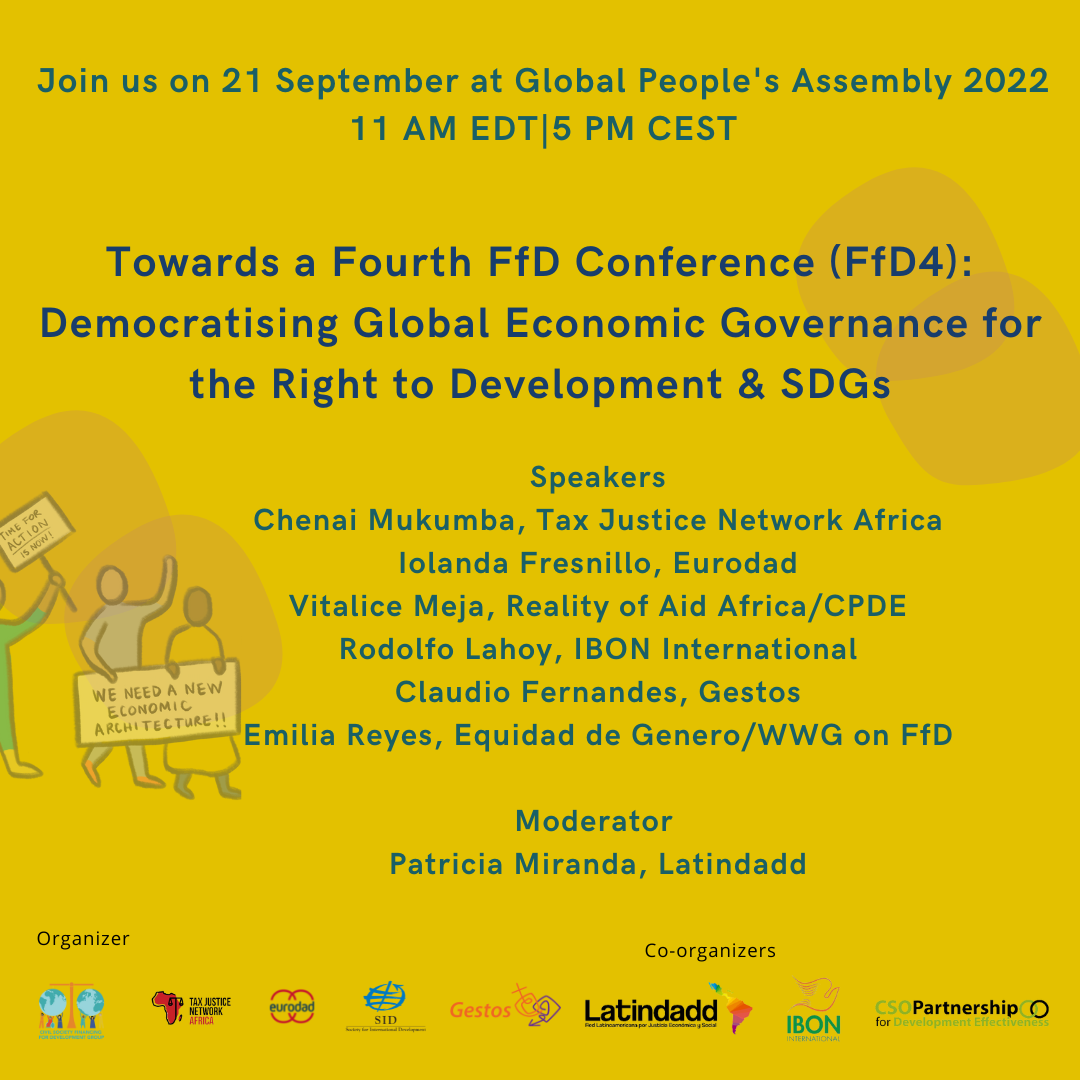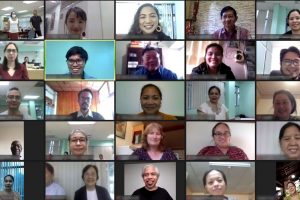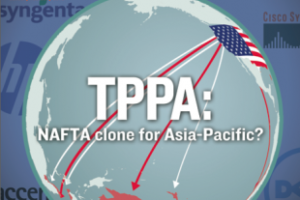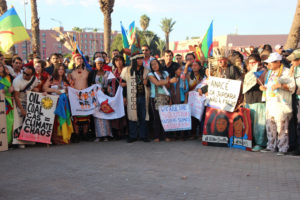The following was delivered by Rodolfo Lahoy of IBON International as an input to the webinar, “Towards a Fourth Financing for Development (FfD4) Conference: Democratising Global Economic Governance for the Right to Development and SDGs” organised by the Civil Society Financing for Development (CS FfD) Group along with other civil society organisations. CSOs are calling for an FfD4 to address related concerns such as the prevailing private finance-first approaches to development amid crises.
I’m calling from Manila. I hope you indulge me in beginning with a brief historical note:
Today, 21 September 2022, marks fifty years after deposed Philippine dictator Ferdinand Marcos Sr. declared martial law in the country—a day now commemorated by social movements as a time of remembering, but also of continuing struggles for social justice.
The Marcos dictatorship was also notable for the backing of the International Monetary Fund and the World Bank Group, and along the way, the imposition of what we now call neoliberal policies—de-regulation, privatisation, liberalisation— in the Philippines. Even after the dictatorship was ousted in an 1986 uprising, the reliance on Northern private capital as a policy trajectory has taken deeper roots.
There is a need to commit to FfD4 at the UN, one that is inclusive and will strongly feature Southern voices, and push systemic shifts in the global economic system, towards halting the prioritisation of false solutions like PPPs and private finance-first approaches.
Reckoning with the Philippines’ history today makes one realise that the neoliberal version of the reliance on increasingly volatile private capital has been implemented in this country for at least four decades.
And in a wider scale, especially the global South, this same policy dogma has been promoted especially by international financial institutions and Northern states for as long. It has taken on new articulations that adapted to crises and policy contexts. From direct privatisation, to public-private partnerships (PPPs), private finance-first logic in development finance, using aid to catalyse private capital, the state has been re-oriented as a “de-risker” for capital. Now, with rising inequalities and ecological degradation, reliance on global private finance is still the norm amid unequal, corporate recovery, rising interest rates, and market volatility – with sustainability branding such as in so-called Sustainable Development Goals (SDG) bonds.
So-called private solutions are all based on the same pre-pandemic norms tied to profit, despite the environmental, social, and governance (ESG) or greenwashing twist. They tend to drive wider inequalities: showing more risks while keeping benefits unproven.
At CS FfD, we see that these so-called private solutions actually obscures the corporate capture of development (where, for instance, investment forums are organised at the UNGA), and the global South’s neocolonial integration into the production networks of transnational corporations (TNC). From where we speak in 2022, another turbulent time to say the least, should it not be a time for real change and ambition?
It could be a window of opportunity to actually call for a process that could lay the ground for addressing systemic barriers. There is a need to commit to FfD4 at the UN, one that is inclusive and will strongly feature Southern voices, could raise the question of power relations, push systemic shifts in the global economic system, towards halting the prioritisation of false solutions like PPPs and private finance-first approaches.
Unfortunately, Ferdinand Marcos Jr., the son of the deposed dictator, is now the President of the Philippines and recently spoke at the UNGA. What does this tell us? Struggles for justice, including social and economic justice, could be protracted. But, we continue, because we know what is at stake: people-centred and genuinely sustainable development.
In this way, we have a chance to put forward real solutions: from addressing systemic barriers to enable public resource mobilisation, to regulating and holding TNCs accountable on rights standards, and prioritising public finance. We need to enable sustainable industrial policy and agriculture in democratic development planning, where we can ground the contributions of domestic enterprises in Southern economies.
Let me end by going back to the historical note: unfortunately, Ferdinand Marcos Jr., the son of the deposed dictator, is now the President of the Philippines and recently spoke at the UNGA. What does this tell us? Struggles for justice, including social and economic justice, could be protracted. But, we continue, because we know what is at stake: people-centred and genuinely sustainable development.#




![[WEBINAR] MDBs in Climate Finance: Boon or bane?](https://iboninternational.org/wp-content/uploads/2023/10/382981017_623360653327649_1511007514046504087_n-300x200.jpg)